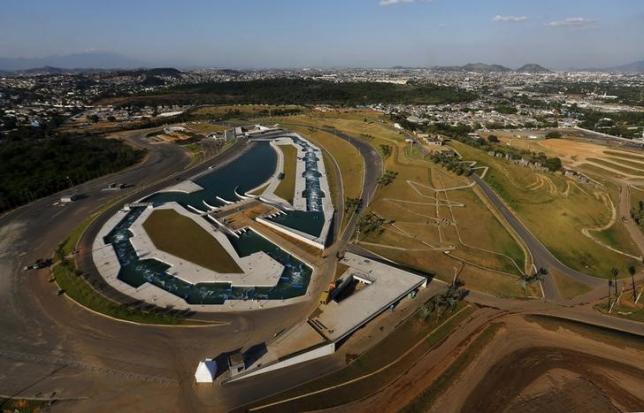Rio Olympics hit again as fraud charges levelled against construction consortium
Fraud charges are last thing organisers need in final weeks before the Games begin

Your support helps us to tell the story
From reproductive rights to climate change to Big Tech, The Independent is on the ground when the story is developing. Whether it's investigating the financials of Elon Musk's pro-Trump PAC or producing our latest documentary, 'The A Word', which shines a light on the American women fighting for reproductive rights, we know how important it is to parse out the facts from the messaging.
At such a critical moment in US history, we need reporters on the ground. Your donation allows us to keep sending journalists to speak to both sides of the story.
The Independent is trusted by Americans across the entire political spectrum. And unlike many other quality news outlets, we choose not to lock Americans out of our reporting and analysis with paywalls. We believe quality journalism should be available to everyone, paid for by those who can afford it.
Your support makes all the difference.Casting a new pall over the summer Olympics, federal authorities in Brazil have raided the offices of a construction consortium contracted to build one of the main competition facilities in Rio de Janeiro amidst charges that it skimmed off millions of dollars in a new corruption investigation.
The alleged scandal centres on the sprawling Deodoro Sports Complex in the north of Rio, built to host eleven Olympic events when the Games open on 5 August and four Paralympic competitions. The raids were carried out on Tuesday at the offices of the consortium at the facility itself.
Implicated were two companies, Queiroz Galvao SA and OAS SA, contracted to build the facility that will be the venue for events including slalom canoe, rugby, equestrian contests and the pentathlon. Both companies have already been implicated in the swirling scandal surrounding Petrobras, the energy giant, which has seen many leading political figures charged or jailed.
The office of the Comptroller General’s Office said in a statement it had found evidence of over-billing, falsification of receipts, and the hiring of a shell company to create fraudulent records of moving and disposal of earth and other debris to make way for the Olympic buildings.
At the core of the case is the allegation that charges were made for earthworks that allegedly never took place. The alleged thievery amounted to a total value of $25 million, the authorities said. A federal judge has also frozen federal funding worth $37 million to pay for the project.
“Representatives of the consortium and authorities from the mayor's office are giving us contradictory information about what happened,” federal prosecutor Fernando Aguiar, part of a Rio-based anti-corruption team, said. ”We don't know where the money or the dirt went.“
And in an additional wrinkle, Brazil’s Supreme Court authorised an investigation into the Mayor of Rio De Janeiro and the face of the Olympics, Eduardo Paies, for having allegedly helped to smother a vote-buying scheme a decade ago. At the time, Mr Paies was on a panel looking into allegations that a former provincial governor had engaged in vote-buying that absolved him.
Both Mr Paies and the former Governor of Minas Gerais State, Aecio Neves, now a Senator, have denied the allegations. The two cases are not related to one another.
Suggestions of fraud threaten to further undermine any prestige that Rio de Janeiro hopes to garner from the 2016 Olympics. Federal authorities had already indicated that it is investigating possible corruption related to a new subway line that was built to take spectators to the Olympic area as well as the the restoration of a slum port area that now features a new museum designed by the Spanish architect, Santiago Calatrava.
In a statement, Queiroz Galvao, refuted the fraud allegations. “The consortium clarifies that the change in the cost of residue transport owes itself to the increased amount of material transported,” it said. “This change didn’t impact the total cost of the project stipulated in the contract.”
The Games have already been hit by concerns about the Zika virus and whether the competitors and spectators may be at risk. Blemishing the run-up to the Games also has been the collapse of a coastal bike path that killed two people and hiccups with the completion of a new tram line.
The city said there would be no impact from the probe on preparations for the Games, however. “We have nothing to hide about construction at Deodoro or anywhere else around Rio,” a spokesperson of the Rio organiser, Mario Andrada, said. “We recommend the highest standards to all the companies that work with us. City Hall does exactly the same.”
Join our commenting forum
Join thought-provoking conversations, follow other Independent readers and see their replies
Comments